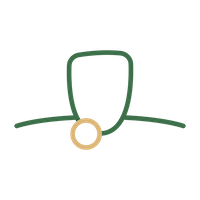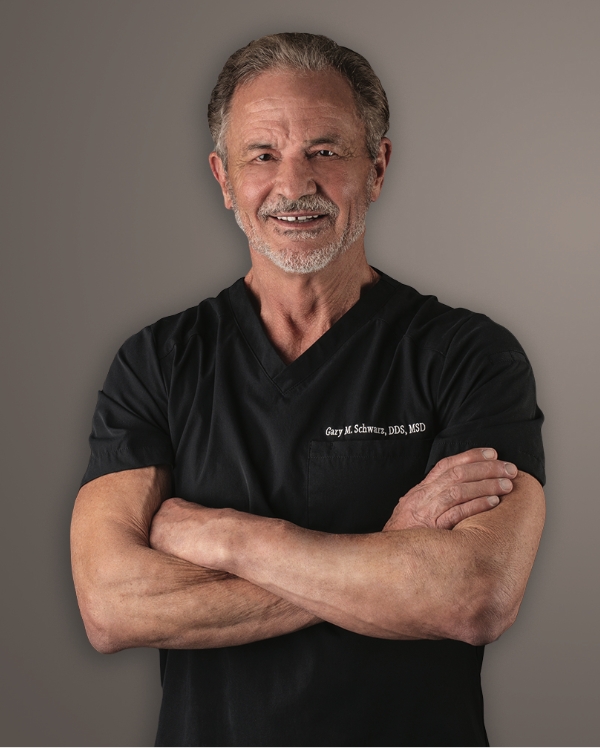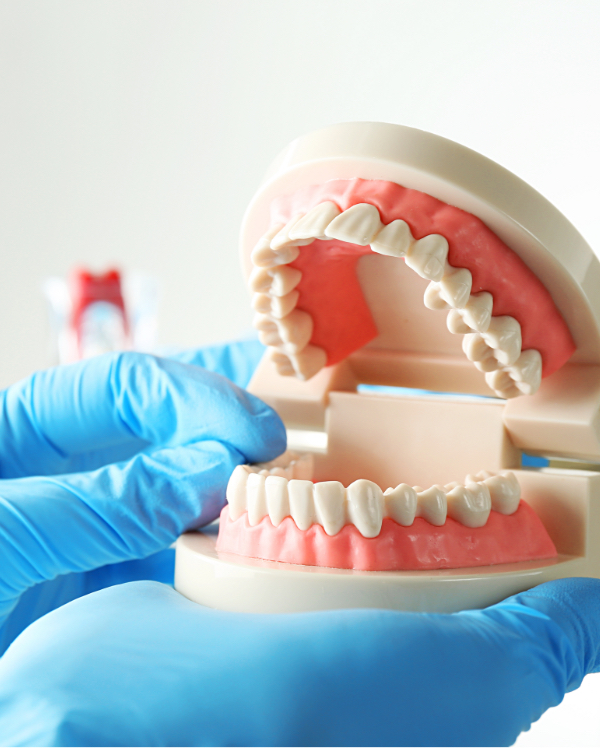
The average mouth is just large enough to comfortably fit 28 teeth; trying to squeeze in 32 teeth can lead to a variety of problems. Pain is usually the main complaint as our wisdom teeth start to come in. They get stuck part of the way in because there is not enough room, and then they get infected. For most patients, the best way to address wisdom teeth is to remove them as soon as possible.
At Valley OMS, our oral surgeons have ample experience with wisdom teeth removal. Our commitment is to patient comfort and safety and the best possible clinical outcomes. If you have questions about getting wisdom teeth removed, reach out to our Texas oral surgery practice at your convenience.
What are Wisdom Teeth?
The wisdom teeth, also known as the third molars, are the four teeth at the very back of your mouth. There are typically two wisdom teeth on the top jaw and two on the bottom. For most people, the wisdom teeth begin to erupt in the late teen years or the early 20s.
Not everyone has wisdom teeth and not everyone with wisdom teeth experiences problems. However, these scenarios are not the norm. The majority of us have wisdom teeth that erupt incorrectly, leading to a number of complications and requiring surgical extraction. It is one of the most common surgeries done in the world.
Common Problems with Impacted Wisdom Teeth
Impacted wisdom teeth if not removed when needed, can cause several problems in the mouth including:

Infections

Teeth Crowding

Cyst Formation

damage to adjacent teeth
Why Do I Need to Have My Wisdom Teeth Removed?
If your wisdom teeth align properly, and if the surrounding gum tissue is healthy, then you may not require those teeth to be removed.
However, it is much more common for wisdom teeth to erupt improperly. Because the jaw does not have sufficient space for these third molars, they may grow sideways, which can cause the surrounding teeth to be pushed out of alignment. This may result in crowding or gapping issues, along with chronic tooth or jaw pain. Additionally, some wisdom teeth erupt from the gum tissue only partially or not at all. When the teeth do not fully erupt, they are called impacted. These teeth can be magnets for bacteria and food particles, leading to infection and to symptoms that include swelling, stiffness, pain, and illness, much like a baby that is teething. In this case, for the baby, infection and pain go away when the tooth finally makes it in all the way. But wisdom teeth without enough space simply cannot make it in. The only solution is extraction.
Even if wisdom teeth are not initially problematic, symptoms can emerge over time, including the development of cysts and other growths. And if you play contact sports, wisdom teeth increase the risk for a jaw fracture. All of these problems can be avoided by having your wisdom teeth taken out. Early removal is the best option, allowing you to sidestep wisdom tooth-related problems altogether, and the softer bone and increased blood supply in the bone of a teenager reduces the risk of complications as well as pain and swelling.
Am I a Good Candidate for Wisdom Teeth Removal?
Most of our patients are advised by their regular dentists to have their wisdom teeth taken out. If dental X-rays reveal that your wisdom teeth will not have the room to grow into place, your dentist may refer you to an oral surgeon to have them taken out before they have the chance to cause problems.
Alternatively, if your wisdom teeth have already grown into place and you are experiencing problems such as swelling, stiffness, or pain, that is a good indication that you could benefit from wisdom teeth removal as well.
Generally, wisdom teeth need to be removed if the patient is suffering from the following problems:

Sinus Problems

Damaged to the Jaw

Damage to Other Teeth

Cavities

Gum Inflammation

Alignment Problems
At Valley OMS, we will provide you with a full consultation, confirming your need for wisdom teeth removal and also verifying that you are a good candidate for a safe and successful procedure.
Meet Your Oral Surgeons
Valley OMS is a full-scope oral surgery practice, offering comprehensive treatment options to patients throughout Texas. Our doctors are well-known for their clinical acumen, compassionate patient care, and commitment to minimally invasive options. Additionally, we have vast experience performing wisdom teeth removals for our patients. To learn more about our surgeons and their clinical experience, we invite you to check out their individual bios.
Why Choose Valley OMS for Your Wisdom Teeth Removal?
For wisdom teeth removal, it is generally recommended that you seek the experience of a trained oral surgeon. Oral surgery practices can utilize a wider range of sedation options so that you are more comfortable during the procedure and the surgery is as smooth and as quick as can be.
Valley OMS boasts an especially strong reputation for wisdom teeth removal. Our founding provider, Dr. Gary Schwarz, has pioneered innovative tooth extraction methods that minimize the need for incisions and bone removal. This promotes better healing and a more comfortable recovery period. He has published the most conservative technique ever written in the world literature, and is now being asked to teach it. All of your doctors at VOMS can now offer this remarkable innovation that took him over 30 years to perfect.
With any questions about our unique approach to wisdom teeth removal, contact Valley OMS at your convenience.

Ready to Have Your Wisdom Teeth Removed?
Most people develop wisdom teeth while in their late teens. Because the jaw is not large enough to fit these extra teeth, they can lead to complications at any age after that, and are better off being removed. Our surgeons have ample experience providing safe, comfortable, and expedient wisdom teeth removals. VOMS has published a journal article showing our techniques, using the smallest incisions, the least bone removal, and the fewest sutures ever published for removing wisdom teeth that are not fully erupted.
Wisdom Teeth Removal: The Process
As you plan for your wisdom teeth removal, it is only natural to have some questions about the process. Though wisdom teeth removal may look a little different from one patient to the next, you can generally expect the following steps.
Consultation
The first appointment typically includes a physical examination and dental imaging, which allows us to confirm that your wisdom teeth are needing to come out. During this appointment, you may also ask any questions you have about the procedure and the recovery.
Sedation
When you arrive for your wisdom teeth removal, we will provide the sedation level needed to ensure a positive, comfortable experience. For most wisdom teeth patients, we recommend a combination of local anesthesia with IV sedation. This combination allows you to be completely relaxed during the procedure.
Bone and Tissue Removal
For impacted wisdom teeth, it may be necessary for your doctor to make some incisions in the gums, allowing access to the tooth, or to remove any bone structure that is in the way. Note that, at Valley OMS, our methodologies are developed to minimize incisions and to prevent or at least minimize the need for bone removal.
Tooth Removal and Stitching
Once we have access to the tooth itself, we will remove it either in one piece or in sections, depending on its position and what makes for the smoothest, simplest extraction. In some cases, especially with impacted wisdom teeth, it may be necessary to use stitching to close the incision site but resorbable gut is used so you don’t need to have them removed. In total, you can anticipate that your procedure will take around 10-30 minutes in most cases.
Will My Wisdom Tooth Extraction Hurt?
We understand that many of our patients are apprehensive about having their wisdom teeth removed, fearing that the procedure will cause them pain. We want to reassure all of our patients that Valley OMS takes their comfort seriously, and we will furnish the appropriate level of sedation to make your wisdom teeth removal a smooth and painless experience.
We can also provide our patients with prescription medications to alleviate any discomfort during recovery. For the majority of our patients, the pain from wisdom teeth removal subsides within a few days.
Read Our Patient Reviews
Should I Have All My Wisdom Teeth Removed at Once?
If only one of the four wisdom teeth is causing problems, is it really necessary to have all of them removed?
This is a question we can field on an individual basis, but generally, it makes sense to have all your wisdom teeth removed at once, even if not all of them are symptomatic. Remember that even asymptomatic wisdom teeth can lead to problems down the road. Meanwhile, having all of them removed at once means you will only need to worry about one procedure, one sedation, and one recovery period.
Will Dental Insurance Cover the Cost of Wisdom Teeth Removal?
While all policies are different, most plans will offer either partial or complete coverage of wisdom teeth removal. We would always recommend checking the specific terms of your coverage in advance. Contact the Valley OMS office with any questions about insurance benefits or financing.
Recovery from Wisdom Teeth Removal
Before you join us to have your wisdom teeth removed, it is helpful to have clear expectations about the recovery process. Your oral surgeon will provide you with specific aftercare instructions, but in the meantime, here are some general guidelines.
How Long Does it Take to Recover from Wisdom Teeth Removal?
While the recovery timeline can vary from patient to patient, most people feel back to normal within three to seven days.
How Can I Manage Pain Following Wisdom Teeth Removal?
It is normal to experience some pain or tenderness following wisdom teeth removal. Although it is usually very milk, swelling typically peaks around post-op day 3-4. For most patients, it is sufficient to address the pain with over-the-counter remedies or with the use of ice packs. We can also offer prescription medications as needed.
When Can I Eat Following Wisdom Teeth Removal?
After your wisdom teeth removal, you will have gauze bandages covering the incision site, keeping the bleeding under control. Most patients will be able to remove the bandaging within an hour or so, and at that point, you are welcome to get something in your stomach. But for day one, no chewing at all. Only liquids. For the first 3 days, we advise you to stick with soft foods and liquids and to avoid anything hot or spicy and so you don’t have to chew on your back teeth near the surgery. You can gradually ease back into your regular diet around postop day 5; most patients are eating like normal within a week. Remember softer foods are easier to clean from extraction sites. Food debris in sites is the most common source of delayed pain after surgery, and for dry sockets.
What About Oral Hygiene?
For the first 24 hours after your wisdom tooth removal, follow these guidelines:
- Avoid drinking through a straw or rinsing your mouth with mouthwash too vigorously.
- Be sure to stay away from alcohol or tobacco, including mouthwash products that are made with alcohol.
- Use a soft, manual toothbrush as opposed to an electric one, and brush all of your teeth but not the sockets. Also, do not over rinse and wash your clots away, or you will get a dry socket.
- Refrain from smoking or using tobacco products during your healing process.
What is Dry Socket?
One of the most common complications from wisdom teeth removal is a condition known as dry socket.
Following your wisdom teeth removal, a blood clot will form in the extraction site and stabilize as soon as the bleeding stops. When this blood clot is lost, it results in a dry socket, which not only causes a lot of physical pain but also prolongs your healing process.
Dry socket can be identified by the following symptoms:
- Severe pain that radiates from the incision site out towards the ear, mimicking an ear ache, beginning usually on day three or four after the surgery, and lasting for 4-5 days.
- Bone matter that is visible in the extraction site
- A persistent foul smell or a bad taste in the mouth
Dry sockets are very painful and can happen no matter how well we do the surgery. But following your aftercare instructions can greatly reduce your risk. Just remember, it is all about your blood clots on the lower wisdom teeth mainly. So begin by making yourself a good, firm blood clot. You do this by not talking right after the surgery so you can maintain moistened gauze pressure on the extraction sties at the back of your mouth. Change as necessary until bleeding stops, then take care of them after the surgery during week one by the following:
- Do not over rinse and wash them away. Brush your teeth, then rinse gently.
- Do not chew on your back teeth or you will force food into the hole and ruin your clot. This means using easy-to-chew foods that you can chew on your middle area teeth.
- Avoid carbonated drinks on first few days.
- Avoid smoking.
- Do not drink through a straw.
If you do think you have developed a dry socket, reach out to your doctor for further instructions. Treatment at our office can greatly alleviate symptoms.
Do I Really Need to Have My Wisdom Teeth Removed?
Nobody looks forward to a tooth extraction, but having your wisdom teeth taken out as early as possible can save you from serious complications down the road. Even if your wisdom teeth do not seem to be causing you any symptoms, you may still wish to talk with an oral surgeon about having them taken out, minimizing your risk of tooth alignment problems or oral infection.
Schedule a Consultation with Valley OMS
If you want to know more about the benefits of wisdom teeth removal, or about the unique procedures we employ at Valley OMS, we welcome you to reach out to schedule a consultation.
Our practice strives to promote patient comfort and safety, and we work to remove wisdom teeth as seamlessly and expediently as possible. We would love to answer any questions you may have about getting your wisdom teeth taken out here at our Texas oral surgery practice. To schedule a consultation with Valley OMS, reach out to our office at any time.





